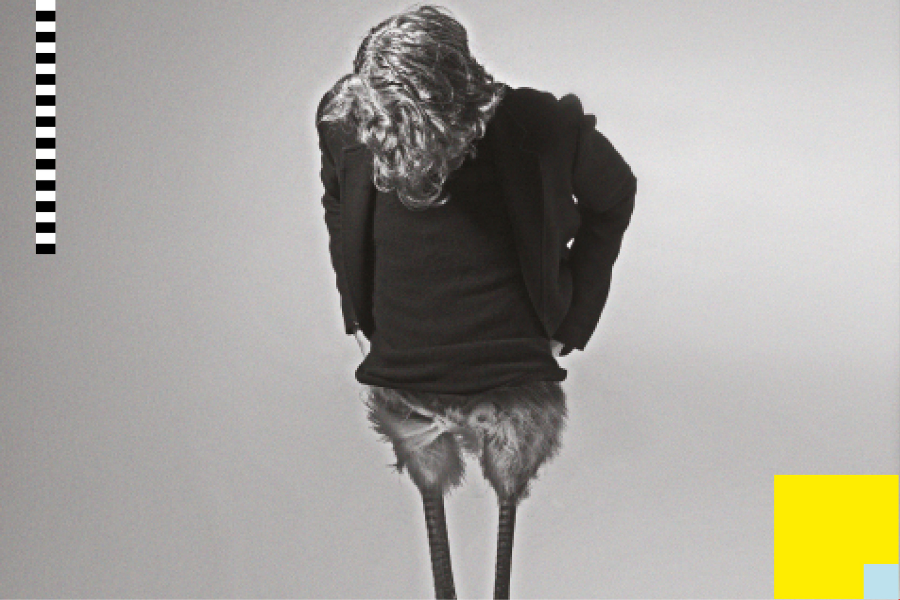Is there a male body image crisis?

There was a time not so long ago when grooming was just for horses and spinning was limited to cricket deliveries. A time when the six-pack had yet to be invented and the only numbers that mattered for men were 20 players, a party seven, and a packet of three.
Seemingly, men have changed a lot. We generally smoke less, exercise more, drink less, and moisturise more. We know more about wine and fashion and less about WWII and tinkering under the bonnet of a Ford Capri. More gym will fix it, less, well, you get the idea. So this is progress, this is a good thing, right? Perhaps. For men’s new-found desire to take better care of themselves has come about partly as a result of brands and advertisers realising that what had worked with women for so many years could also work with the opposite sex.
Men were sold a new image of what they could and should be. Similar insecurities were played upon and predictably, men’s self-image has taken a nosedive.
An eating disorder epidemic
Approximately 1.25 million people in the UK have an eating disorder, and around 25 per cent of these people are male, according to Beat, a UK eating disorder charity. Similarly, the number of adult men admitted to hospital has risen significantly over the past decade.
“Women have always had this and men have just started to get it,” explains Jacqueline Hurst, a life coach with 15 years’ experience and founder of The Life Class. “Women have always had the pressure to be a size zero, 6’2″, blonde with the looks of a 17 year old. Now men are facing the same pressure to be fashionable and look good.
“Men’s self-image has changed over the past 15 years which in one way is a good thing, especially for women,” she continues. “We like to know men are taking care of themselves, but there’s a fine line between taking care of yourself and going to lunch with someone who brings along a box of chicken and vegetables.”
Regulating emotions with exercise
Others take a more positive view of the changing patterns in male behaviour. Matt Roberts has worked in personal training since the 90s and has established himself as arguably the country’s leading practitioner in men’s fitness. He firmly believes men are in a better place than when he began. “I wouldn’t say men’s self-image is in crisis,” he argues. “It’s more about guys seeing the need to do something about their health, wellness, and wellbeing and taking positive action. To me, it’s a good thing.”
Matt is aware of the mental health issues which are claiming the lives of an increasing number of men (suicide is the number one cause of death in men under 50) but believes exercise is actually key to promoting better mental health. “Feeling in control of your weight and shape, and experiencing the sense of wellbeing that comes from exercise has a positive impact on self-image. Just understanding that we’re in control of ourselves has a very positive effect on mental health.”
Jacqueline believes social media can make things more difficult, and promote a deeply unrealistic view of the world. “Somebody said, ‘Nobody’s life is as interesting as their Instagram feed’ and that’s very true. When do you see people posting pictures of themselves after they’ve had a row with their wife or been shouted at by their boss?”
Speaking up when things are tough
It’s easy to romanticise the past, despite the reality being difficult. That said, I believe things are tougher for men now than ever before, but most men are better prepared these days. And, for the most part, there’s better advice out there to help with mental health issues even if expectations about men’s looks might have changed. “It’s very much about getting a good hormonal balance, getting a good testosterone balance, getting cortisol levels under control,” explains Matt. “That’s the mainstay of how I work. General wellness, physically and mentally.”
For Jacqueline, the key to good mental health is emotional rather than physical. “My number one piece of advice is to talk,” she urges. “I see so many boys and men who just don’t talk. I think women are the stronger sex because we talk about it, because women have girlfriends. Men have no support and talking about it is so important.”











